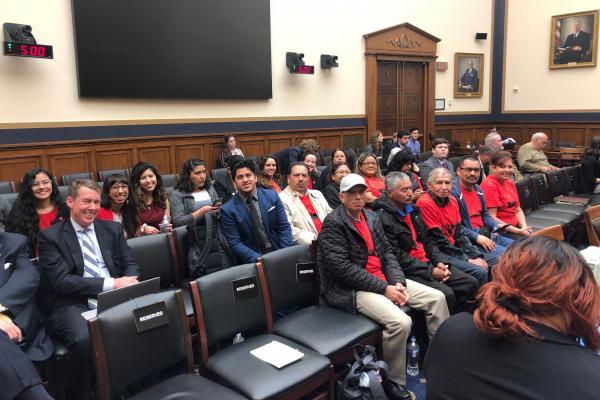Apr 8, 2019
“Unskilled” and “temporary” do not accurately describe the people Areli Arteaga loves and works with — and she has no problem addressing those false labels. Arteaga, the daughter of two agricultural workers who immigrated to the U.S. from Mexico almost 30 years ago without documents, testified before the U.S. House Judiciary Committee on April 3, urging Congress members to help pass The Agricultural Worker Program Act of 2019, also known as the “Blue Card” bill.
Read the Full Article

Already a subscriber? Login
